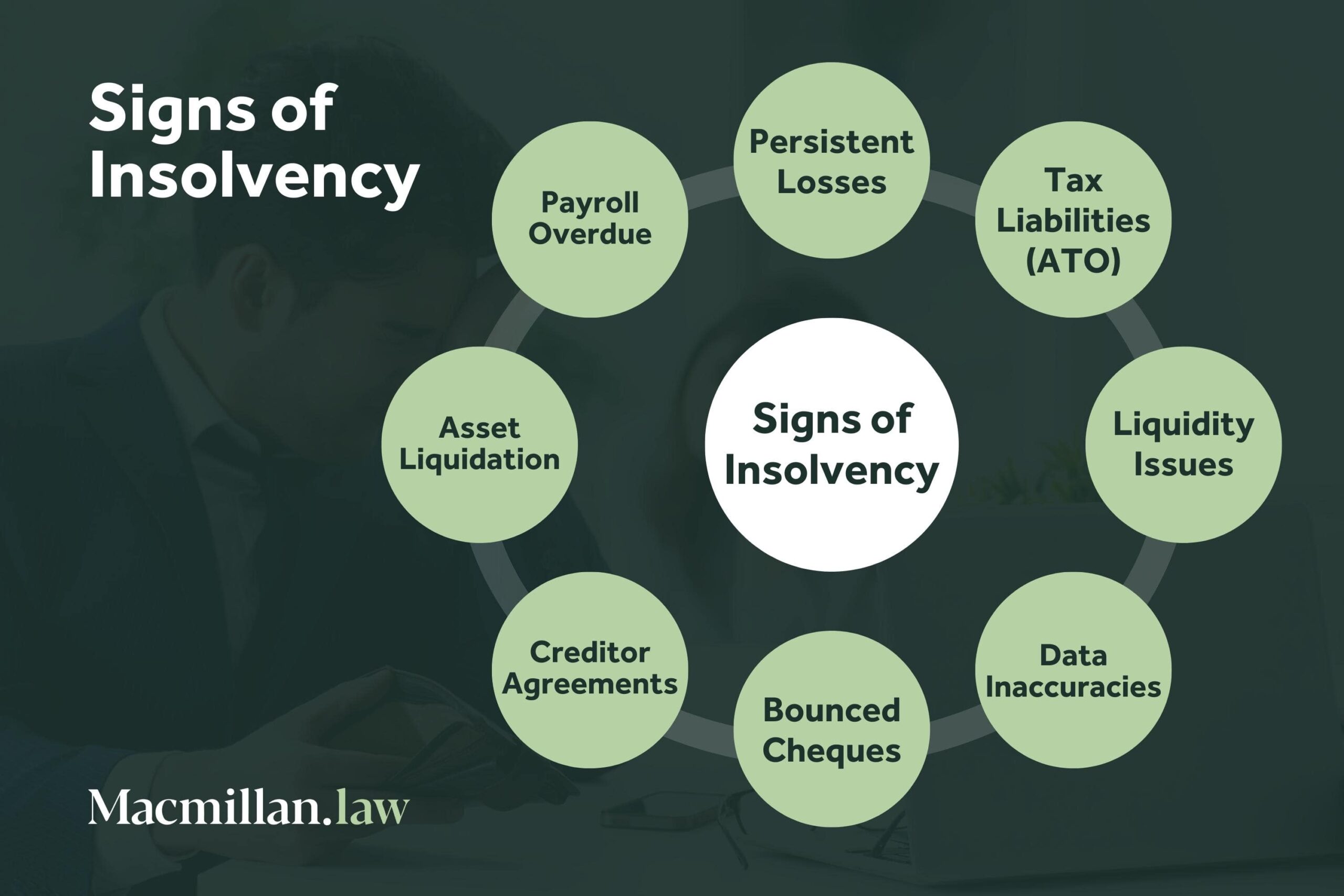Insolvency Practitioner Fundamentals Explained
Table of ContentsGet This Report on Insolvency PractitionerThe Ultimate Guide To Insolvency PractitionerGetting My Insolvency Practitioner To WorkThe Insolvency Practitioner StatementsNot known Incorrect Statements About Insolvency Practitioner Insolvency Practitioner Can Be Fun For AnyoneThe Facts About Insolvency Practitioner Uncovered
Insolvency is when liabilities are above the worth of the firm, or when a debtor can not pay the financial obligations they owe. A firm can become insolvent due to a number of circumstances that result in poor cash money circulation. When confronted with insolvency, an organization or person can contact financial institutions directly and restructure financial obligations to pay them off.Bankruptcy can cause insolvency proceedings, in which legal action will certainly be taken against the bankrupt individual or entity, and possessions may be sold off to pay off outstanding debts. Local business owner might speak to lenders directly and restructure financial obligations into more convenient installations. Financial institutions are usually responsive to this approach since they wish to be paid off and prevent losses, also if the repayment is on a postponed timetable.
Insolvency Practitioner Fundamentals Explained
The owner develops a proposal outlining exactly how the debt may be reorganized utilizing cost reductions or various other prepare for support. The proposition shows financial institutions exactly how business might generate sufficient capital for rewarding procedures while paying its financial debts. Commonly, a forgiven financial obligation may be taken into consideration earnings by the Irs (INTERNAL REVENUE SERVICE).

Insolvency Practitioner Can Be Fun For Everyone
When operations stop, so does the company's income (Insolvency Practitioner). Some companies end up being insolvent because their items or solutions don't evolve to fit customers' transforming demands.
Expenditures surpass profits and costs stay unsettled. Cash-flow bankruptcy occurs when a business has the properties to cover their financial obligations but they are in the incorrect type, such as real estate rather of fluid funds. Balance-sheet bankruptcy, on the various other hand, suggests an absence of possessions in any type of form to cover financial debts.
The IRS states that a person is financially troubled when the complete liabilities exceed overall properties. A insolvency, on the various other hand, is a real court order that portrays exactly how a bankrupt individual or organization will pay off their creditors, or how they will market their assets in order to make the settlements.
Insolvency Practitioner - The Facts

Recognizing the variables that can cause insolvency, such as overspending, can assist you protect against bankruptcy and its consequences.
The Ultimate Guide To Insolvency Practitioner
It is popular that supervisors and police officers of firms (and supervisors of limited responsibility business) owe fiduciary obligations to their organizations and their investors (or members). These fiduciary commitments are specified by state laws and, though there are variations from one state to another, they generally consist of a task of loyalty and a duty of care.
The task of care calls for directors and policemans to work out persistance, to make educated decisions, and to act in good belief so that their actions are in the very best interest look these up of the firm. Beyond the range of this conversation, some states enable these obligations to be restricted either by so noting in the organizational documents or complying with various other needs.
Not known Facts About Insolvency Practitioner
A lot of states specify bankruptcy in 2 means( 1) when a company's responsibilities come to be above the sum of its properties or (2) when the business becomes not able to pay its financial debts as they come to be dueand accept both meanings (Insolvency Practitioner). The shift in obligations happens due to the fact that when a firm is financially troubled, there is no worth in the business past read what he said that owed navigate here to the firm's lenders to ensure that the equity holders no longer have an economic risk in the business
Take care about giving shareholders favoritism at the expense of creditors (e.g., authorizing and moneying a returns or a stock redemption). Beware regarding advantageous therapy in between courses of shareholders. Make affordable initiatives to learn all the truths prior to taking a certain strategy; supervisors ought to genuinely think that any decisions made are in the very best passions of the corporation in its whole (i.e., choices will be evaluated in knowledge because of the impact of such actions on the corporation).
In any type of insolvency or insolvency case, settlements made to particular lenders at the cost of various other financial institutions can be clawed back, particularly if there is some connection in between the firm and the financial institution. Think about recommending at an annual shareholder conference (or any kind of various other conference of stockholders) a resolution verifying that all prior business decisions and activities taken by the supervisors and policemans of the corporation were taken in excellent faith after an exercise of sensible care.
All about Insolvency Practitioner
Totally disclose any type of personal or business relationships with parties beyond of transactions including the corporation to prevent the appearance of a dispute of interest. In assessing possible fund increasing purchases or a sale of properties of the struggling firm, understand that these purchases might be looked at later taking into account any type of succeeding growth of directors' fiduciary responsibilities to consist of lenders.